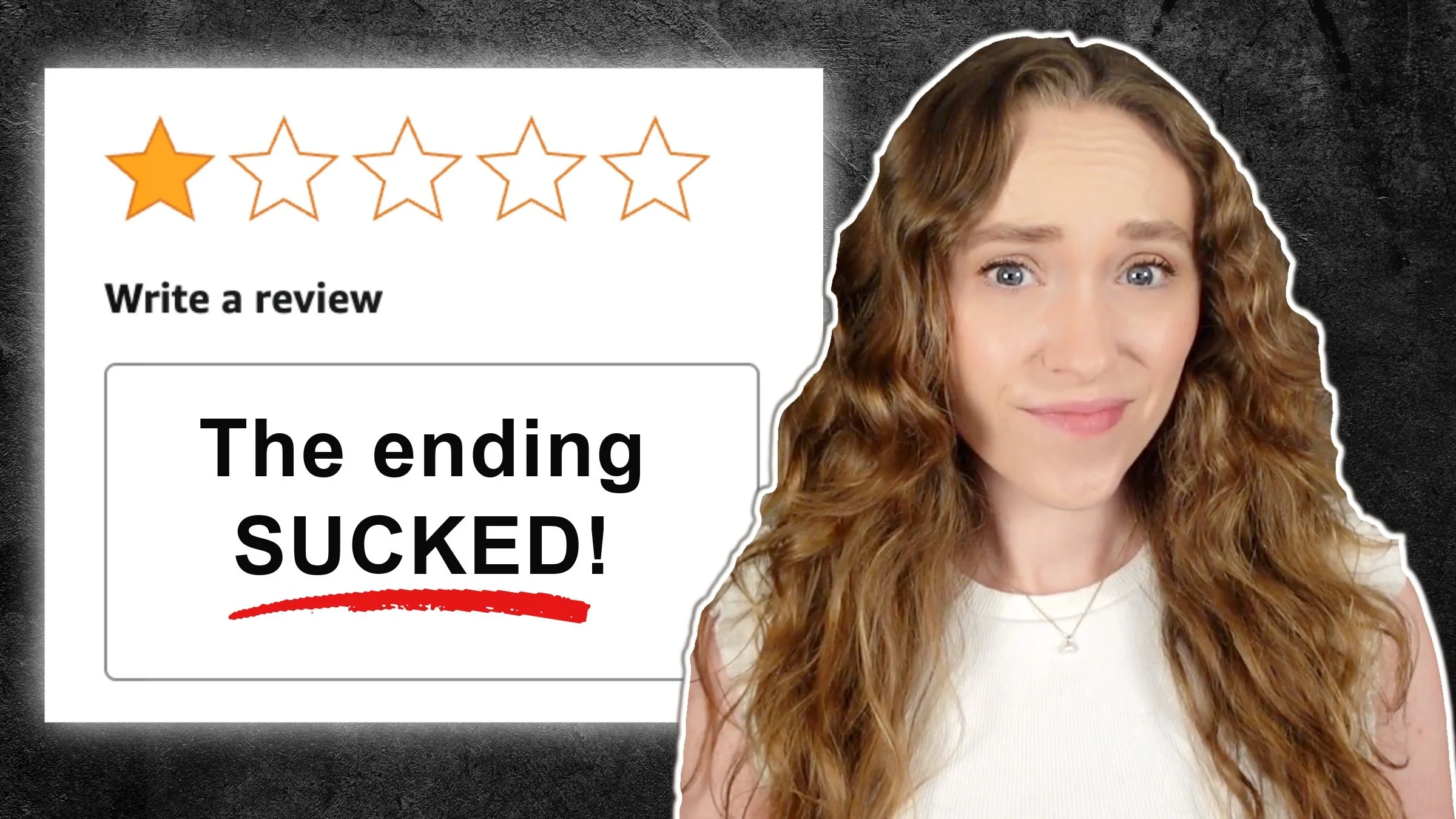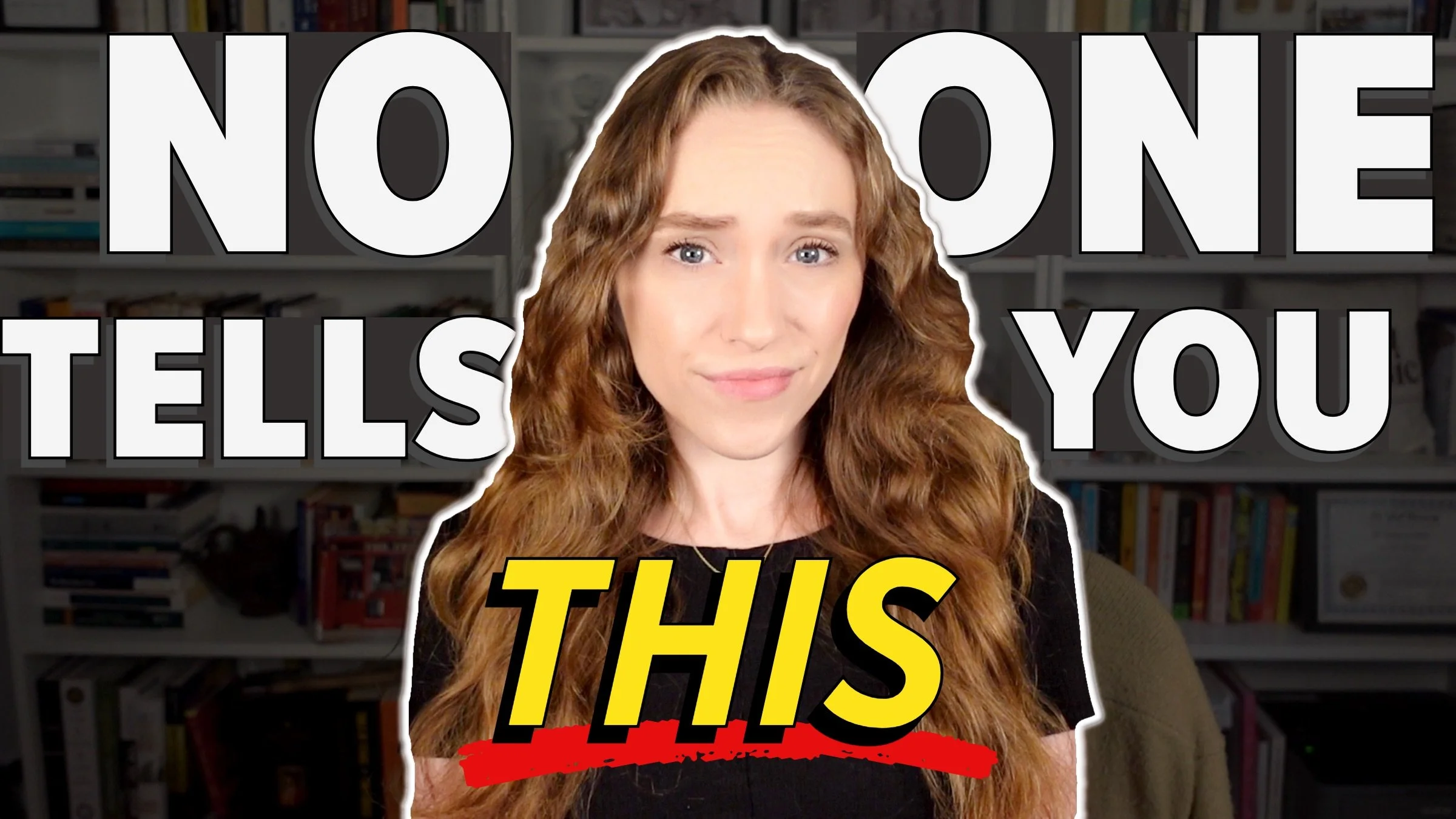Terrible Writing Advice You Should Ignore
HIT PLAY OR READ THE POST BELOW:
Let's be real for a second: there is a ton of writing advice on the internet that is bad, not helpful, and, in some cases, counterproductive.
As a professional book editor who's worked at two of the Big Five US publishing houses as well as a top literary agency, my goal is to bring helpful, practical advice that writers can immediately apply to their manuscripts and see positive results. It’s what I’ve been trained in, and I’m passionate about helping aspiring authors strengthen their stories and navigate the confusing publishing process.
With that, I want to highlight five pieces of writing advice that I disagree with and frankly think is bad. I’ll also give examples of what I would recommend doing in place of these bits of terrible writing advice.
“Exposition Is the Enemy”
The first piece of terrible writing advice is “exposition is the enemy.” A common piece of writing advice is to not spend time giving the reader information about the character's backstory or the background context about their situation, what we call exposition. The argument is that the reader should be smart enough to figure it out on their own, so you should just keep going with the story.
While it's true that you don't want to spoon-feed everything to your reader, and they should be able to figure out certain things as the story progresses, a foundational amount of backstory is necessary for the reader to get oriented in the setting and get a clear picture of the novel's world, characters, and stakes.
This is especially true for the first pages of your book. If there is no exposition whatsoever, it is going to be very difficult for the reader to get grounded and hooked in the story. You might lose them before you begin if you don't give them some sense of who the characters are, where they are at, what the context of their situation is, and what the conflict of the plot is building to.
Effective exposition comes down to a delicate balance of giving the reader enough information to feel situated in the story and follow the action of the plot but not so much that you end up taking them out of the story for prolonged periods of time. You do not want to provide pages and pages of exposition. Even more than two or three paragraphs of exposition can get tiring to read.
Exposition should be woven throughout the main narrative and integrated organically so that it becomes a natural part of your story. Think of it like the placard text next to paintings at a museum. While you can still enjoy a painting at first glance, those placard texts offer some additional insight and information that enriches the viewing experience, much like exposition enriches the reader’s experience of your story.
“Aim for Literary Writing”
The next piece of terrible writing advice I think you should avoid is to “aim for a literary writing style.” Have you ever read a passage that is so packed with imagery and SAT vocab words that it's difficult to interpret what the actual meaning is?
Readers can tell when a writer is trying to elevate their writing and make it sound more “literary.” But remember that literary writing is not necessarily better writing. It also doesn’t suit every kind of story.
Trying too hard to make your writing sound literary can turn into “purple prose,” which is when there is so much verbose or ornate language that it actually obscures the meaning of what's trying to be conveyed. This type of language can become distracting to the reader, so I recommend letting your writing take whatever style feels natural and organic to you.
Of course, you can and should always work to improve your writing craft. But do not feel the need to fit a specific mold or to even classify your writing as literary. Just be confident in your own goals and intentions as a writer.
“Never Write a Prologue”
The third piece of terrible writing advice is to never write a prologue. There is a lot of debate in author communities about whether or not to include a prologue, which honestly kind of surprises me. When I worked in the publishing industry, the editors and agents I worked with never had an issue with well-done prologues. They never expressed a blanket ban on prologues or deemed them unacceptable in every scenario.
My view is that, for some novels, a well-crafted prologue can be quite effective, especially if you're writing historical fiction or thrillers. A good prologue can tease some of the plot’s action that is to come later on. Of course, as with any scene in your novel, if it is poorly executed, it’s going to be distracting to the reader. You also shouldn’t feel compelled to include a prologue for the sake of it.
So, if you find yourself leaning towards a prologue or feeling like a specific scene could hook the reader's interest right at the beginning of the story, don't feel like it's off limits. A well-executed prologue, in my opinion, can help with framing the story effectively and engaging the reader.
“Every Story Needs a Villain”
The next piece of terrible writing advice is that “every story needs an antagonist or a villain character.” It may be immediately clear to you, even before you started writing your novel, who your antagonist or villain is. If that’s your case, great! This piece of advice doesn’t apply to your project.
However, if you are struggling to figure out who the antagonist of your manuscript is and it's keeping you up at night, don't worry. Your story doesn't necessarily need to have a character that is an antagonist or a villain. It's just simply not true that every protagonist has to have an antagonist character. Some of the most captivating stories are the ones where there isn't a specific character working against the protagonist.
There doesn't always need to be the single identifiable person that represents all of the evil and negative energy in your story, because remember: sometimes in life not one thing or person can be put to blame for everything that happens to us. Sometimes there are stories where characters just grapple with whatever life throws their way, and that can be just as captivating as a story that has a clear enemy or villain.
You'll see examples of both approaches in best-selling books. Both approaches are totally valid, so if your story does not have a villain character, do not worry. It might not need one.
“Write What You Want to Read”
The last tip of terrible writing advice is “write what you want to read.” I don’t like this piece of writing advice for a couple of reasons. I don't think your personal writing style or even the genre you're writing in has to match what you enjoy reading for pleasure. I also think it's okay, and maybe even good, for your readers to have a different taste or be a different demographic than yourself.
You should not feel required to conflate your personal identity and your personal tastes with whatever you're writing. Remember, this is your creative craft. It does not have to define who you are as a person or what you like outside of writing.
I would personally revise this piece of writing advice to say “write the book you want to write,” not necessarily the book you want to read.
I hope these tips help you ignore all these pieces of bad writing advice floating out there. Put them out of your mind and listen to what actually helps you strengthen your own story. Everyone's story and process is unique and different, and you should only take the writing advice that resonates and works for you.
Thanks so much for reading and happy writing!





